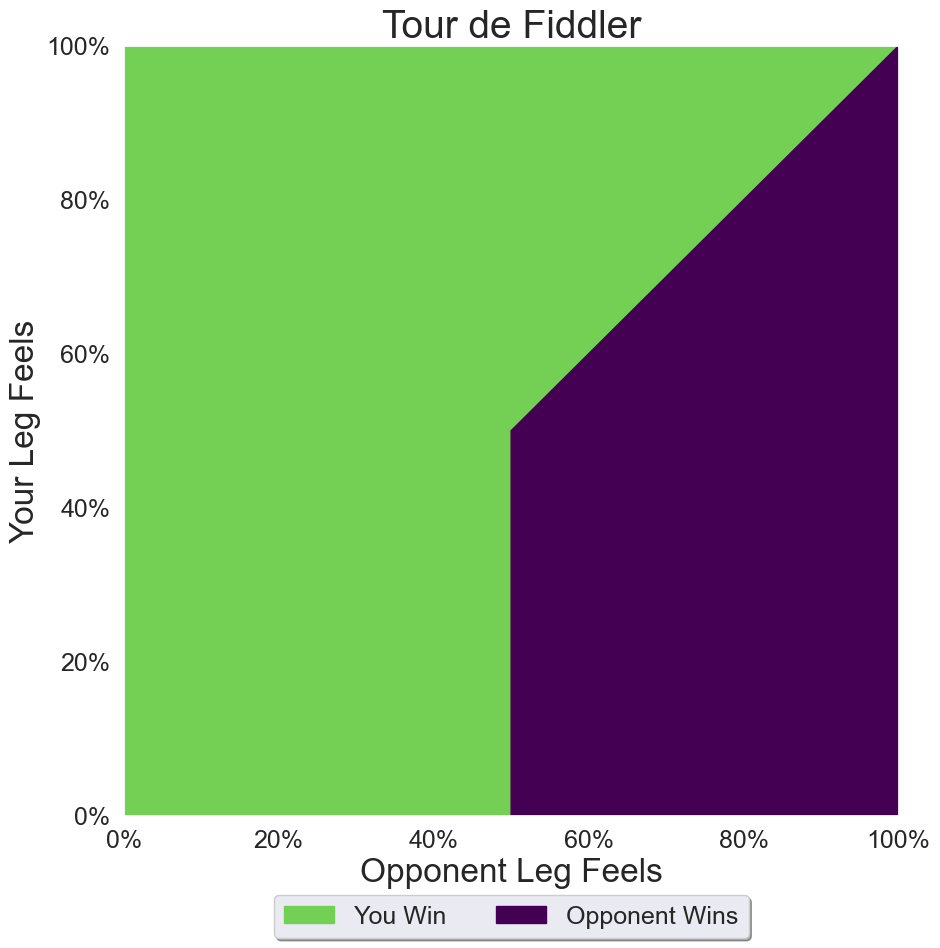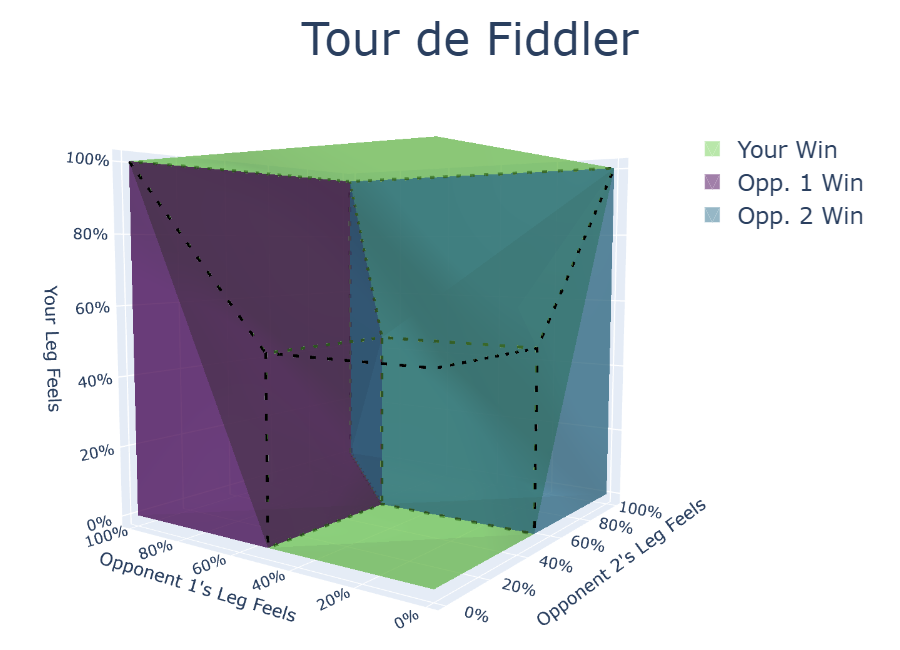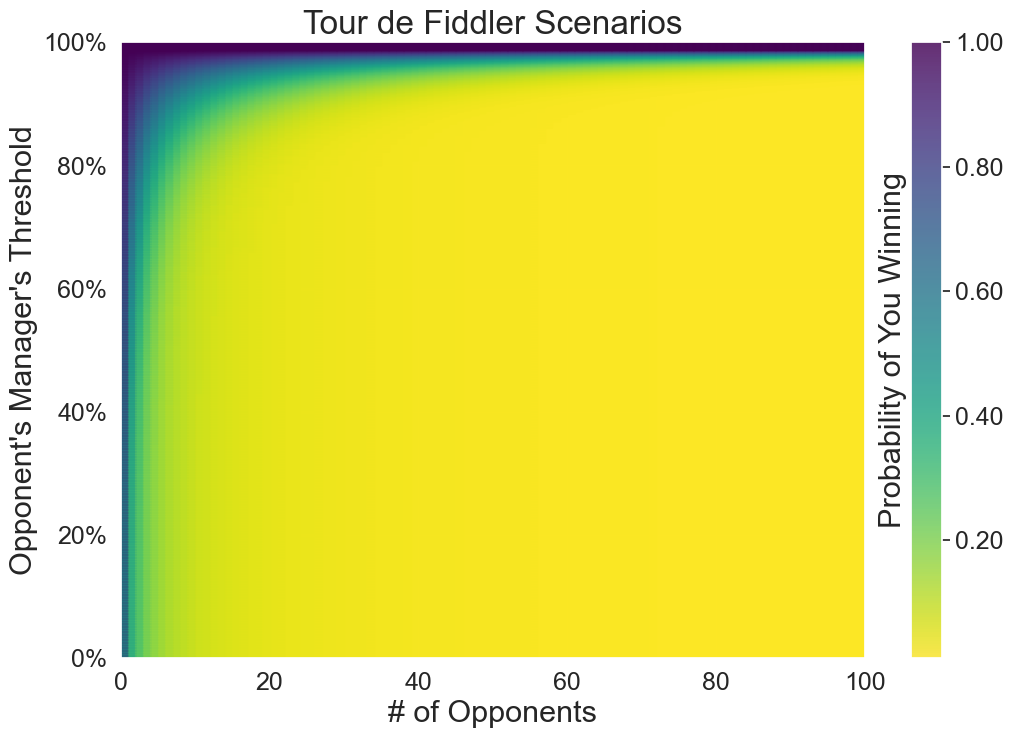Can You Sprint to the Finish?¶
Every summer I try to run a cycling-related puzzle to coincide with the Tour de France. Previous puzzles have involved the team time trial, “King of the Mountain” points, the shape of the peloton, being paced up a climb, and last year’s catching the breakaway.
This time around, you and a competitor are approaching the finish of a grueling stage of the Tour de Fiddler. One of you will win the stage, the other will come in second. As you approach the finish, each of you will test the feeling of your legs, which will be somewhere between 0 percent (“I can barely go on!”) and 100 percent (“I can do this all day!”). For the purposes of this puzzle, these values are chosen randomly, uniformly, and independently.
Immediately after feeling your legs, you and your opponent each have a decision to make. Do you maintain your current pace, or do you sprint to the finish? Among those who sprint for the finish, whoever’s legs are feeling the best will win the stage. But if no one sprints for the finish, everyone has an equal chance of winning the stage. In the Tour de Fiddler, you must each decide independently whether to sprint for the finish based on your legs—you don’t have time to react to your opponent’s decision.
Normally, teams at the Tour de Fiddler keep their strategy and tactics close to the vest. But earlier today, your opponent’s manager declared on international television that if (and only if) your opponent’s legs were feeling 50 percent or better, they’d sprint for the finish.
As you are about to test your legs for the final sprint and see how they feel, what are your chances of winning the stage, assuming an optimal strategy?


